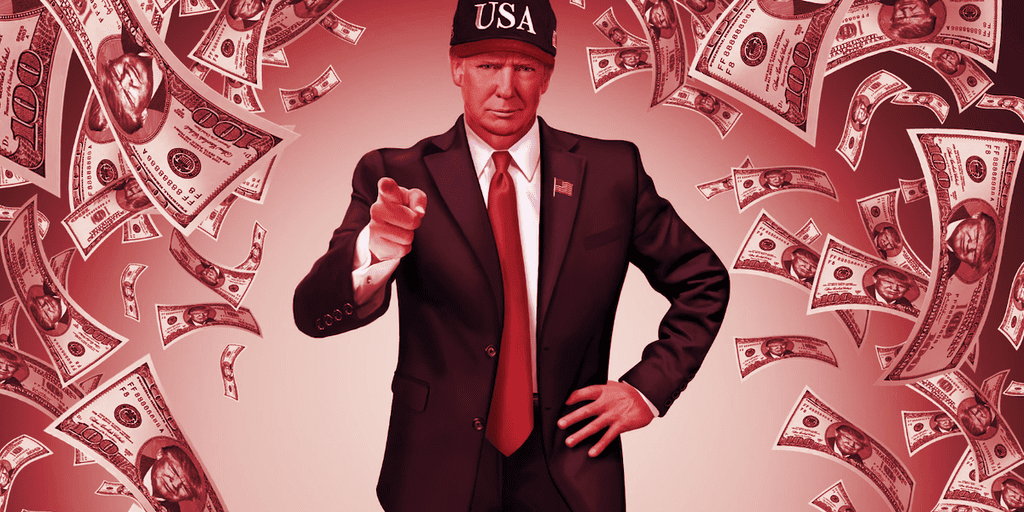In brief
Donald Trump’s NFTs have lost significant momentum, with sales volume and floor price down sharply from respective peaks.
Sales volume on Wednesday was 98% lower than on the peak day less than two weeks ago.
Former U.S. President Donald Trump’s official NFT trading cards were the talk of the crypto industry—not to mention much of Twitter and even late night TV—when they launched a couple of weeks ago, but the hype has since faded significantly.
Secondary market sales for the Trump Digital Trading Cards, which are minted on Ethereum scaling network Polygon, tallied just over $59,300 in total on Wednesday, per data from CryptoSlam. That’s a 98% drop from the peak sales day of over $3.5 million on December 17—and continues the steady slide in momentum and value for the NFTs.
Trump’s collection is hardly dead, however. As of this writing, the former president’s NFTs are the 69th best-selling project over the past 24 hours, according to CryptoSlam, with just over $44,000 in sales during that span. By contrast, top project the Bored Ape Yacht Club has notched over $2 million in sales over the past day.
The secondary market premium on Trump NFTs is fading quickly, too. The NFTs originally sold for $99 apiece during the primary sale, and amid the hype around the project in the days after the initial mint, even an NFT with “common” artwork and traits commanded a sizable multiple of that. The floor price, or price of the cheapest listed Trump NFT on a marketplace, peaked at 0.84 ETH (about $990) on December 17.
Now, however, the floor price on top marketplace OpenSea is just 0.15 ETH, or about $180. Some of the NFTs have sold for as low as $131 apiece on the marketplace today.
Trump’s NFTs launched on December 15, with 44,000 of the Polygon NFTs offered to the public depicting the disgraced ex-president as a cowboy, astronaut, and more. Another 1,000 of the NFTs were kept by the project’s creators. Each $99 collectible served as a contest entry to win prizes and perks, such as dinner or a meet-and-greet with Trump.
The NFTs were widely mocked as a cash grab, and even criticized by some of Trump’s own supporters. Some of the artwork elements were apparently stolen from online apparel imagery, plus Trump’s team is alleged to have held onto a disproportionate amount of the rare NFTs in the collection. Some initial buyers complained of technical hitches, too.
Still, the buzz fueled secondary market demand for a few days thereafter, as some NFT “degen” traders saw an opportunity to profit from flipping the controversial assets. But the hype has been short-lived, with prices and trading volume crashing just days after the launch. And as sales data shows, the market isn’t getting any hungrier for Trump’s digital cards.
Trump, who was previously opposed to cryptocurrencies, said in a recent interview that the NFT artwork was “sort of cute,” and that he “didn’t view it as an investment.”
Trump’s initial NFT sale raked in over $4 million and sold out within 24 hours. All told, the project has generated about $9.8 million to date in secondary trading volume, with Trump’s team taking a 10% cut of sales made through marketplaces that honor creator royalties.




